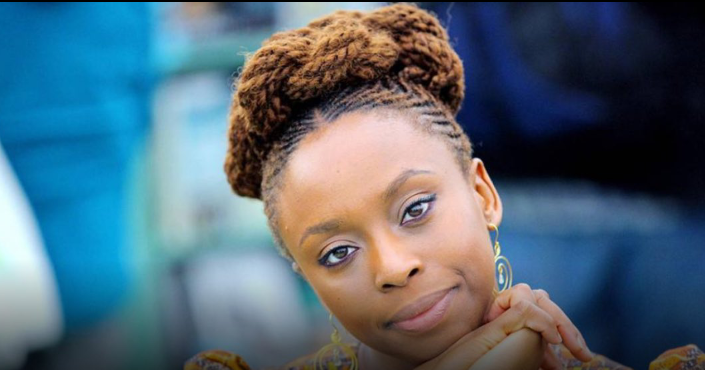
Chimamanda Adichie Sounds the Alarm: Social Media Is Bad for Our Brains and Can Never Replace Literature

Renowned Nigerian writer and global literary figure Chimamanda Ngozi Adichie has once again stirred public debate with her unflinching views on the role of social media in today’s world, issuing a stark warning that the growing dominance of digital platforms is damaging human cognition and eroding the deep intellectual nourishment that literature provides. Adichie, who has long been celebrated for her incisive critiques of culture, politics, and identity, declared that while literature enriches the mind and strengthens the ability to focus, social media has the opposite effect by rewiring the brain and compressing people’s attention spans to alarming degrees. “The thing social media can never do for us that literature does for us… it’s actually quite bad for our brains. It’s rewiring our brains and compressing our ability to focus. Literature does the opposite,” she said in a statement that has since sparked conversations across the literary and technological communities.
The award-winning novelist, whose works such as Half of a Yellow Sun and Americanah have shaped contemporary African literature and secured her a prominent place on the global literary stage, lamented that in an age dominated by scrolling timelines, trending hashtags, and endless digital chatter, the culture of reading is gradually losing its grip on society. According to her, fewer people today are engaging with books in ways that demand long periods of reflection and immersion, and this shift represents not just a cultural change but a cognitive one, with far-reaching consequences for how people think, communicate, and perceive the world around them. Adichie expressed concern that while there will always remain a segment of society that loves literature, the majority is increasingly distracted by the fleeting gratification offered by social media, and this could spell disaster for the quality of thought and creativity in future generations.
What makes her warning especially timely is the fact that social media is no longer just an entertainment tool; it has become the primary medium of communication, information, and even identity for billions across the globe. With platforms like Instagram, TikTok, and X (formerly Twitter) dominating how people interact with reality, Adichie argues that humanity is losing something more valuable than convenience—the ability to think deeply. In her words, literature trains the mind to linger, to contemplate, to hold complex ideas in place, and to cultivate empathy by stepping into the worlds of others through stories. Social media, on the other hand, fragments thought, rewards distraction, and conditions the brain to constantly seek instant gratification. This contrast, she insists, must be acknowledged rather than ignored.
Beyond social media, Adichie broadened her critique to include the wider scope of technology, particularly artificial intelligence, which she sees as another area where society is rushing headlong without asking the hard questions. “There is a kind of unquestioning acceptance of social technologies that surprises me. We should question more social media, AI. The few people deciding how our future as human beings should be is troubling. This is the time to question AI, because we haven’t even reached a global consensus on what it is supposed to do,” she warned. Her words underscore a growing anxiety shared by many thinkers and experts who argue that humanity is placing too much trust in technological systems designed by a handful of powerful corporations and individuals. The novelist stressed that while AI holds vast potential to transform fields ranging from medicine to education, it also poses risks that, if left unchecked, could alter the trajectory of human society in ways that are irreversible and catastrophic.
Adichie’s comments strike at the heart of a dilemma that has come to define the 21st century: how to balance the conveniences of digital technology with the preservation of fundamental human values such as deep thought, creativity, and connection. Her voice carries weight not only because of her literary achievements but also because she represents a bridge between cultures, having spoken at global stages from the United Nations to TED conferences. Her perspective reminds us that progress is not always synonymous with improvement, and that societies must take deliberate steps to preserve what makes us human in an age increasingly mediated by algorithms and artificial systems.
The tension she highlights between social media and literature can be seen in the way people now consume stories. Once, novels were read over days and weeks, their themes lingering in the mind and sparking discussions that stretched beyond the last page. Today, however, narratives are often consumed in the form of 30-second videos, memes, or posts designed to grab attention rather than foster understanding. For Adichie, this shift represents not only a loss of cultural richness but also a neurological concern, as brains conditioned by rapid-fire digital interactions lose the patience needed for sustained focus. Neuroscientists have supported similar arguments, warning that excessive social media use can diminish concentration, memory, and even empathy, echoing the very points Adichie has made.
Her warning is not merely a critique but also a call to action. By urging society to question the technologies it embraces, she challenges individuals, educators, and policymakers to rethink their relationship with digital culture. Should children be encouraged to spend more time reading physical books instead of being left to endless screen time? Should schools design curricula that protect focus and curiosity in the age of constant notifications? Should governments and international bodies establish clearer guidelines for how AI develops, ensuring that it serves humanity rather than undermining it? These are questions that Adichie believes must be urgently addressed before it is too late.
Her statement also resonates with the reality of Nigeria and Africa at large, where the spread of smartphones and cheap data has brought millions online but has also led to new challenges of misinformation, addiction, and dwindling reading culture. Nigeria, once celebrated for its vibrant literary tradition, now faces an uphill battle in getting young people to engage with books in meaningful ways. Adichie’s voice, therefore, is not just a critique of global culture but also a reminder to her home country to revive its commitment to reading and storytelling.
It is important to note that Adichie is not advocating for the abandonment of technology altogether. Rather, she is calling for balance, questioning, and conscious use. Her point is that technology should serve humanity, not the other way around. Literature, she argues, is one of the most powerful tools we have for preserving our humanity because it slows us down, teaches us to think, and allows us to imagine. In a world hurtling toward ever faster, ever shorter, ever more distracted ways of living, that is a gift we cannot afford to lose.
The novelist’s comments are likely to fuel ongoing debates about the role of social media in shaping the future. While some may argue that social platforms democratize information and give voice to the voiceless, others will agree with Adichie that their hidden costs are too steep to ignore. What remains undeniable, however, is that her words have once again challenged society to pause and reflect, to look beyond the glittering surface of digital convenience and ask hard questions about what kind of future we are building.
Chimamanda Ngozi Adichie has never shied away from difficult truths, and in calling social media “bad for our brains,” she has sparked a conversation that is as urgent as it is uncomfortable. Whether the world will heed her warning remains to be seen, but what is clear is that her voice, grounded in the power of literature and the love of humanity, continues to remind us that in a time of unprecedented technological change, it is our duty to hold on to the practices that make us truly human.


